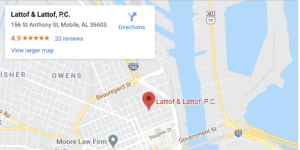What is Negligence?

On your way to work, you’re passing through an intersection when a car traveling the opposite way slams into the side of your car.
The accident totals your car and causes several injuries.
In this case, the other driver ran a red light, caused the car accident, and is responsible for the damages you incur.
You can file claims with your insurance company or the other driver’s insurance provider, or you can file a personal injury lawsuit against the other driver. To recover compensation, you’ll need to prove that the driver’s negligence caused the accident and your injuries.
Table of Contents
What is Negligence in Law?
In legal terms, negligence refers to the failure to handle a situation with the level of care that an ordinary person would have behaved under similar circumstances.
Usually, the accused failed to act in a way that aligns with community standards.
Though negligence can apply to other types of legal cases, it’s a common component in personal injury claims and lawsuits. In these cases, the injured party, usually the plaintiff or claimant, demonstrates that the other party caused the injury due to negligence.
Elements of a Negligence Case
Each state has unique negligence laws, but typically, these cases require you to prove four elements to win a case. It helps to examine each component as they apply to a realistic situation, so consider the example above and how each element applies.
Duty of Care
Duty of care is a legal phrase that describes the responsibility people have to avoid hurting others. Every time somebody drives a car or truck, they have a responsibility to act appropriately and obey traffic laws. The duty of care, in this case, is operating a motor vehicle safely and within the constraints of the law.
Breach of Duty
Once it’s established that a duty of care exists, you have to show that it was breached – or violated – in some way.
In other words, the defendant – either through actions or a failure to act – didn’t satisfy the duty of care that was owed to you.
In the example above, you’d have to have evidence to show how the driver breached their duty of care to you. Maybe they were distracted and didn’t notice that their light was red.
Maybe they were drunk and fell asleep at the wheel. Whatever the reason, you’ll have to show that they failed to act reasonably and, as a result, didn’t exercise the level of care that was needed to keep you safe.
Causation
Next, you must prove that the driver’s conduct caused your accident. Generally, there are two types of causation: cause in fact and proximate cause.
Cause in fact: means that had it not been for the defendant’s actions, you wouldn’t have gotten hurt. The accident is a direct consequence of their actions. In this case, if not for the other party running the red light, you would have driven through the intersection and safely arrived at work.
Proximate Cause: Proximate cause means that your accident was a reasonably foreseeable consequence of the driver’s actions.
Damages
Finally, you must show that you sustained injuries and suffered losses.
Typically, it’s required that you sustain either (a) physical bodily injury or (b) damage to personal property.
Once you’ve established either of these damages, you can then seek compensation for other crash-related damages, as well – like pain and suffering or mental anguish.
Alabama no longer has maximums in place for damages. However, if you seek punitive damages, you must show that the other party acted maliciously. You would need to convince the court that the other person’s actions extend beyond negligence. Meeting the burden of proof for punitive damages is challenging.
Keep In Mind Alabama Has Contributory Fault Laws
Alabama is one of a very limited number of states that operates under a pure contributory fault system. In very simple terms, this means that you’ll be barred from recovering compensation if you had anything to do with your accident. This is true, even if you can prove that someone else was also negligent – or even more negligent than you were.
For that reason, it is imperative to speak with an attorney after a motorcycle crash, slip and fall, or another type of accident. You might be blamed, and if you do nothing it won’t matter if you can prove that someone else was negligent. Your attorney can protect you in these situations by working to disprove the allegations that you share blame.

